Specification About Injection Mold
——
| Mould Name | Turbocharger Housing Mold |
| Mould Application | Automotive Exterior Trim Molds |
| Mould Base | S50c |
| Steel Type | 718H |
| Mould Cavity | 1 Cavity |
| Injection Machine Size | 760T |
| Mould Lifespan | 30K Shot |
About Plastic Turbocharger Housing Mold
——
Plasti Turbocharger Housing Mold is a special injection molding tool used to manufacture plastic turbocharger housings by injecting high temperature resistant engineering plastics (such as PPS, PA66-GF, etc.) at high pressure to mold turbocharger housings with complex runner structures. The plastic injection molding process allows for the integrated molding of cooling lines, sensor brackets, and other structures, reducing the number of assembly steps and improving sealing, and the Plastic Turbocharger Housing Mold is able to integrate a vacuum exhaust system, avoiding defects caused by trapped air in complex flow paths. The turbocharger housing mold produces a product that ensures a leak-free turbocharger at high pressures and is burst pressure resistant.
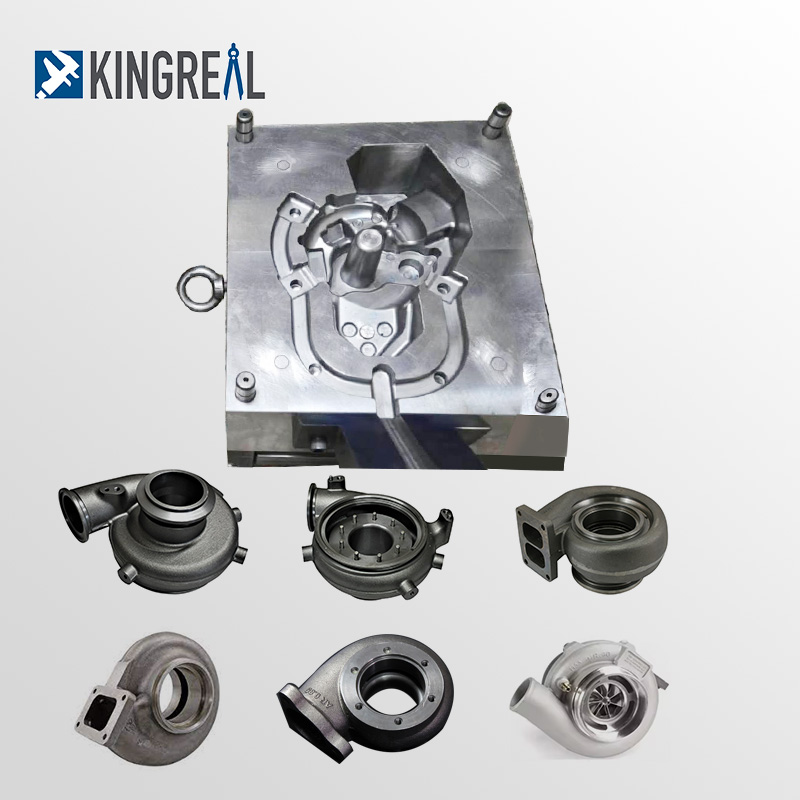
Why Do You Need Plastic Turbocharger Housing Mold?
——
1.Plastic Turbocharger Housing Mold produces plastic housings that can reduce weight by 40-60% compared to traditional aluminum alloys, which directly reduces the overall weight of the vehicle and improves fuel efficiency or electric range. With the downsizing of engines and the popularity of new energy vehicles, turbochargers need to adapt to more stringent weight limits.
2.Injection molds use PPS, PA66-GF50 and other high temperature engineering plastics to produce turbocharger compressor housing, and through the optimization of mold design (such as shaped cooling water circuit) to reduce thermal deformation, while the mold design combined with fiberglass reinforced technology to enhance the resistance to compression and creep performance, to meet the needs of complex working conditions.
3.Plastic turbocharger housing mold can help manufacturers in the automotive industry to reduce production costs, mold life extension and shorten the molding cycle significantly reduces the cost of a single piece, the application of five-axis machining centers and other advanced equipment to enhance the precision and efficiency of mold processing, to adapt to the needs of mass production.
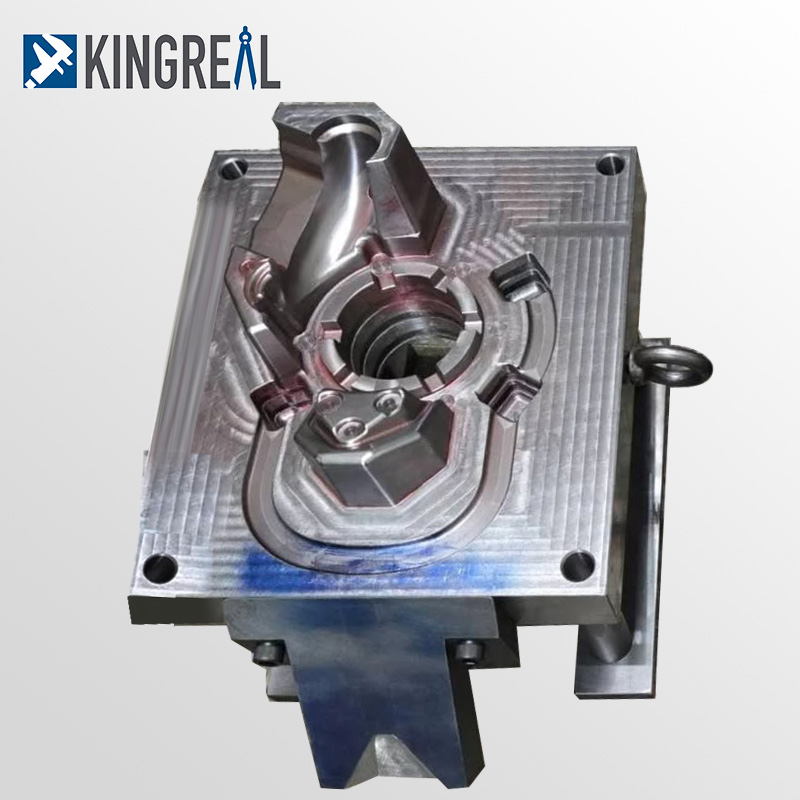
KRMOLD Automotive Injection Mold Service
——
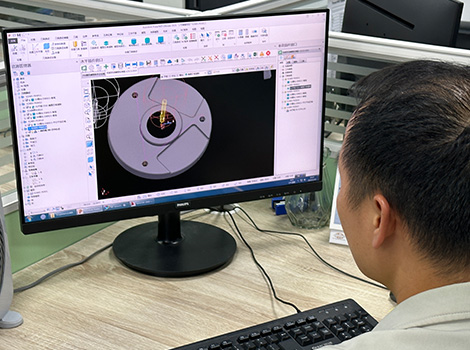
KRMOLD provide full-process service from integrating requirements, mold design and manufacturing to delivery and after-sales service.
The technical team is deeply involved in the customer's product design stage, optimizing the mold structure and designing the mold drawings through the mold flow analysis software (such as Autodesk Moldflow, UGNX). Equipped with imported CNC, Shadick wire cutting machine, mirror discharge equipment and other precision processing equipment to achieve ±0.02mm precision;
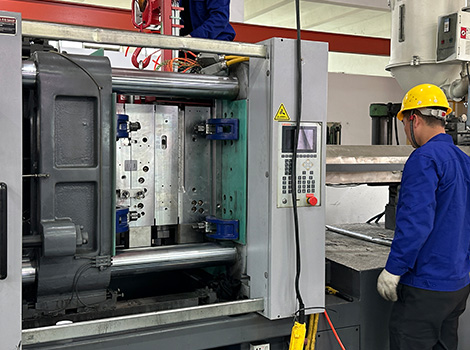
Forged aluminum alloy: including hot forging and cold forging processes. High performance forging process, with excellent performance, high price
We have a large-scale intelligent workshop to support secondary processing such as silk-screen printing, welding, spraying, etc. We strictly implement the quality system of ISO13485 and IATF16949; meanwhile, we provide free transportation, regular mold maintenance and one-year warranty service.
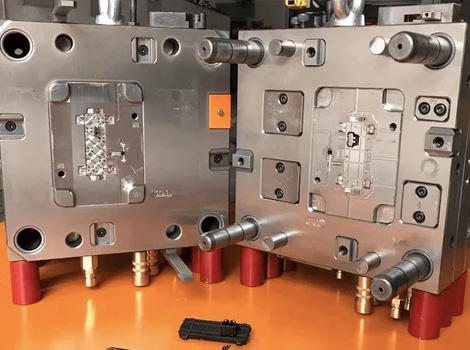
Serving 20+ industries such as medical, automotive, 3C electronics, etc. Cases cover precision medical device molds, automotive connectors and other complex parts.
Cooperated brands include Ford, Mercedes-Benz, BMW, Audi and Great Wall Motor.
A team of engineers with more than 10 years of experience to provide product structure optimization and cost control suggestions
"Through digital management, production progress monitoring from the beginning of the order, for different orders and delivery date for data monitoring, once there are factors that may be delayed, immediately arrange to speed up the production schedule, to ensure that the customer in the delivery period to complete the manufacturing of plastic injection molds.The production workshop is equipped with injection molding machines of famous brands at home and abroad, such as Nissei and Toshiba of Japan, etc. We provide customers with factory trial mold testing services to ensure the quality and precision of the molds. We provide inspection report after mold trial and assist customers to adjust injection parameters."
Meet Different Injection Molding Processes
——
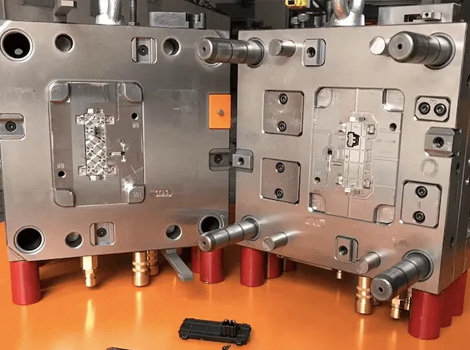
Insert molding is a process in which pre-processed materials such as metal, glass, ceramics, etc. (called inserts) are fixed in a mold and then injected with a plastic melt to wrap the inserts. Inserts are combined with plastic to form an integrated structure, and are commonly used for parts that need to be reinforced with specific functions or integrated with dissimilar materials.
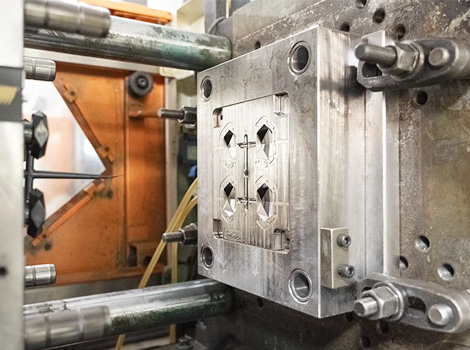
Double Shot Molding is the process of injecting different colors or materials of plastic in two shots on the same injection molding machine to achieve a seamless combination of the two materials by rotating the mold or switching the cavities. The two materials form a chemical bond or mechanical interlocking structure in the molten state.
"KRMOLD Plastic turbocharger housing mold can meet different types of injection molding process design according to the customer's actual demand of production products."
Application Of Turbocharger Housing Mold?
——
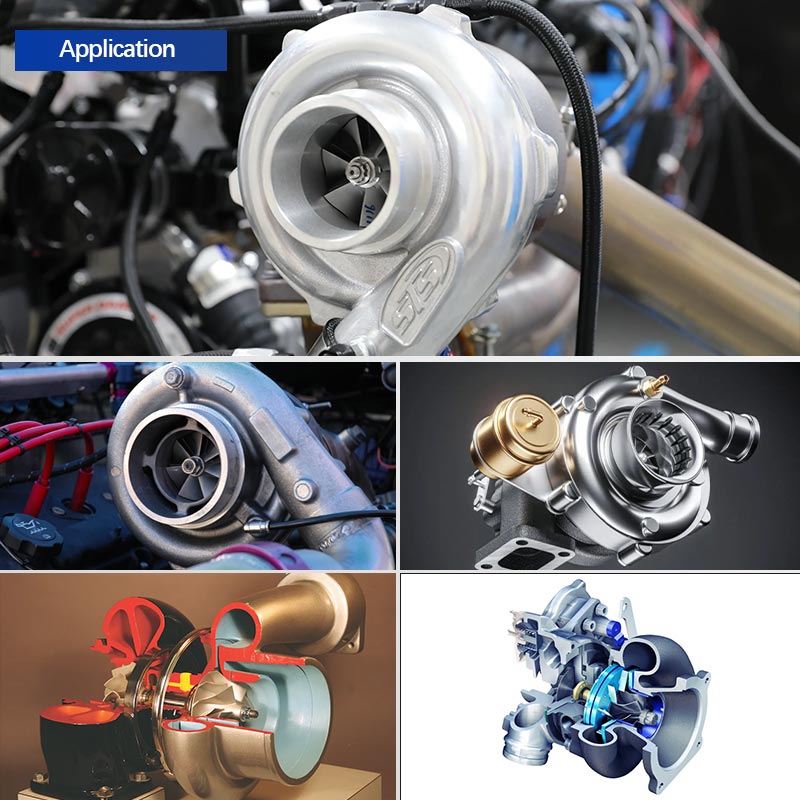
Automotive Injection Molding Industry Development
——
1/ Electrification and Intelligent Upgrade
Hybrid/electric superchargers need to be adapted to 48V systems and electronic actuators, and plastic molds support sensor embedding and lightweight integration design. Turbocharger needs to meet the demand of engine miniaturization and intelligent control, high-precision molds for plastic housings become the core guarantee.
2/ Sustainability
Optimization of plastic mold production processes (e.g., 3D printing of contouring waterways) reduces energy consumption and material waste. The development of bio-based high temperature plastics (e.g. some bio-based PA materials) further reduces the carbon footprint and meets the environmental requirements of the automotive industry.
3/ Improvement of production efficiency
Extended mold life (e.g., Arcuri's patented technology) and shorter molding cycles (≤60 seconds) significantly reduce cost per part. The application of advanced equipment such as 5-axis machining centers improves mold processing precision and efficiency, adapting to the needs of mass production.
Specify the type of plastic (e.g. PP, ABS) and post-processing requirements (e.g. spraying, silk-screen printing), and provide 2D or 3D plastic part drawings should be provided. At the same time, provide the production volume, appearance requirements, tolerance standards, etc.
Generally speaking, our engineers will start to prepare the quotation immediately after the customer provides the complete production requirements. Usually it takes about 1-3 days.
The lead time for regular injection molds is usually 30-60 days, and may be longer for complex molds. For example, the typical lead time for liquid silicone molds is around 60 days, covering design, manufacturing, mold testing, etc.
High-precision processing technology: High-precision equipment such as CNC machining centers (CNC) and electric discharge machining (EDM) are used to optimize the design process in combination with CAD/CAM software. Quality control: Inspection of key dimensions of the mold by Coordinate Measuring Machine (CMM) and verification of multiple sample batches during the trial molding stage. Material Selection: Use die steel with high wear resistance (e.g. H13, S136) and surface treatment (e.g. nitriding, chrome plating) for die nuts to extend the life.
After every 50,000 molds, check the guide pillar, ejector pin and other wear parts, and clean up the residual plastic and rust on the mold surface. Use high temperature grease for sliding parts (e.g. tilt top, slider) to reduce friction loss. Ensure that the water circuit is smooth and the temperature difference is ≤5℃ to avoid cracking of the mold due to thermal stress.
Mould cost of materials accounted for about 30-40% (such as 1 ton of P20 steel price of about 20,000 yuan), processing costs accounted for more than 50% (CNC labor hourly rate of about 80-150 yuan / hour). Small batch production can choose aluminum mold or simplify the structural design; more than 100,000 pieces is recommended to use carbide inserts to enhance life!
Mould injection products need to fully meet the design requirements (such as size, appearance), and can be continuous and stable production. Mold marking, inspection reports (such as material hardness test) and engineering drawings should be complete.
Mould steel (such as S136H, NAK80 and other imported materials cost more) and the type of mold embryo (aluminum mold short-term cost is low but short life) directly affect the cost, the use of CAD/CAE/CAM design technology, hot runner system, etc. will increase the upfront investment, but can enhance the long-term benefits (such as reducing the sprues, increase production capacity).